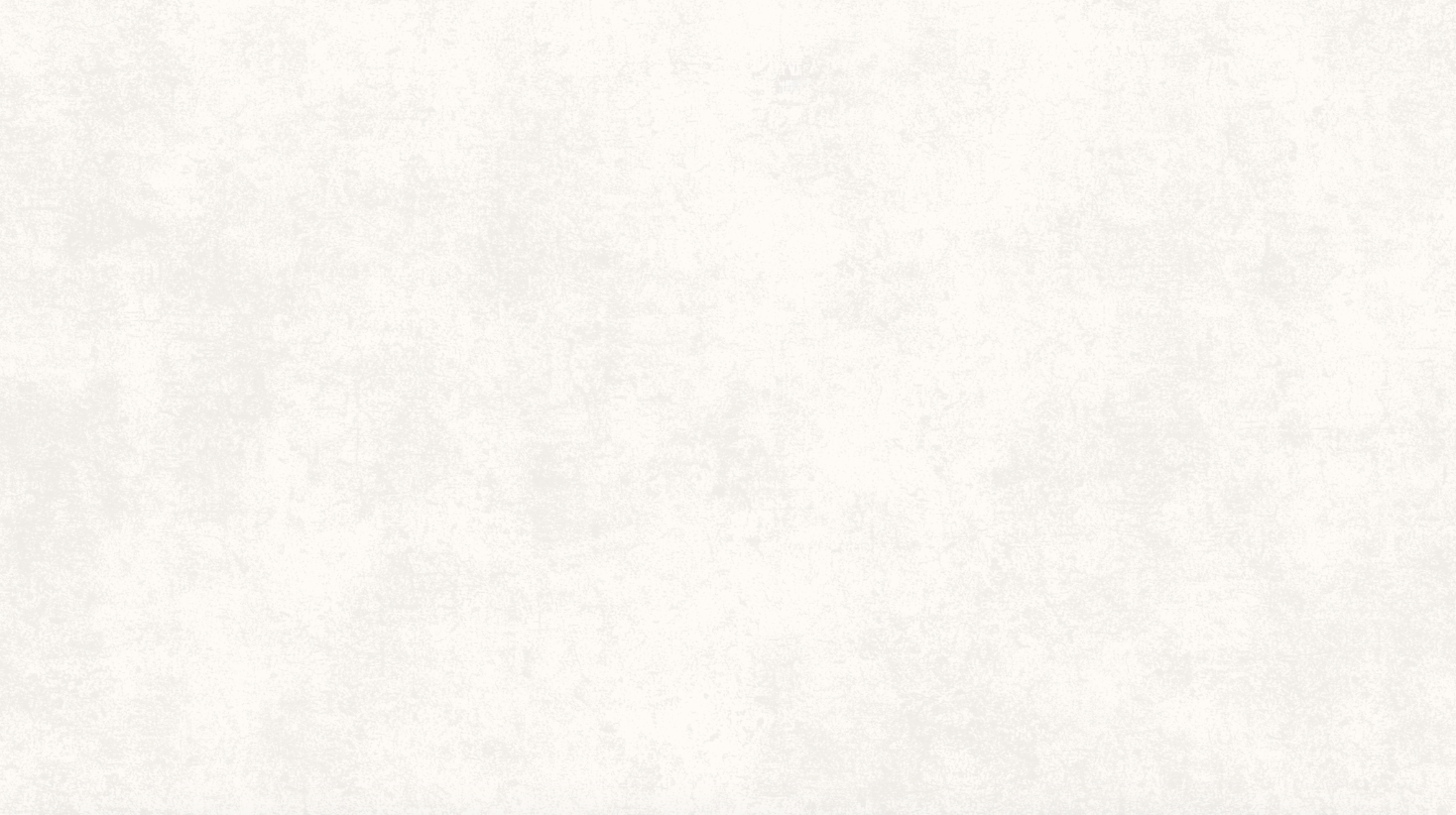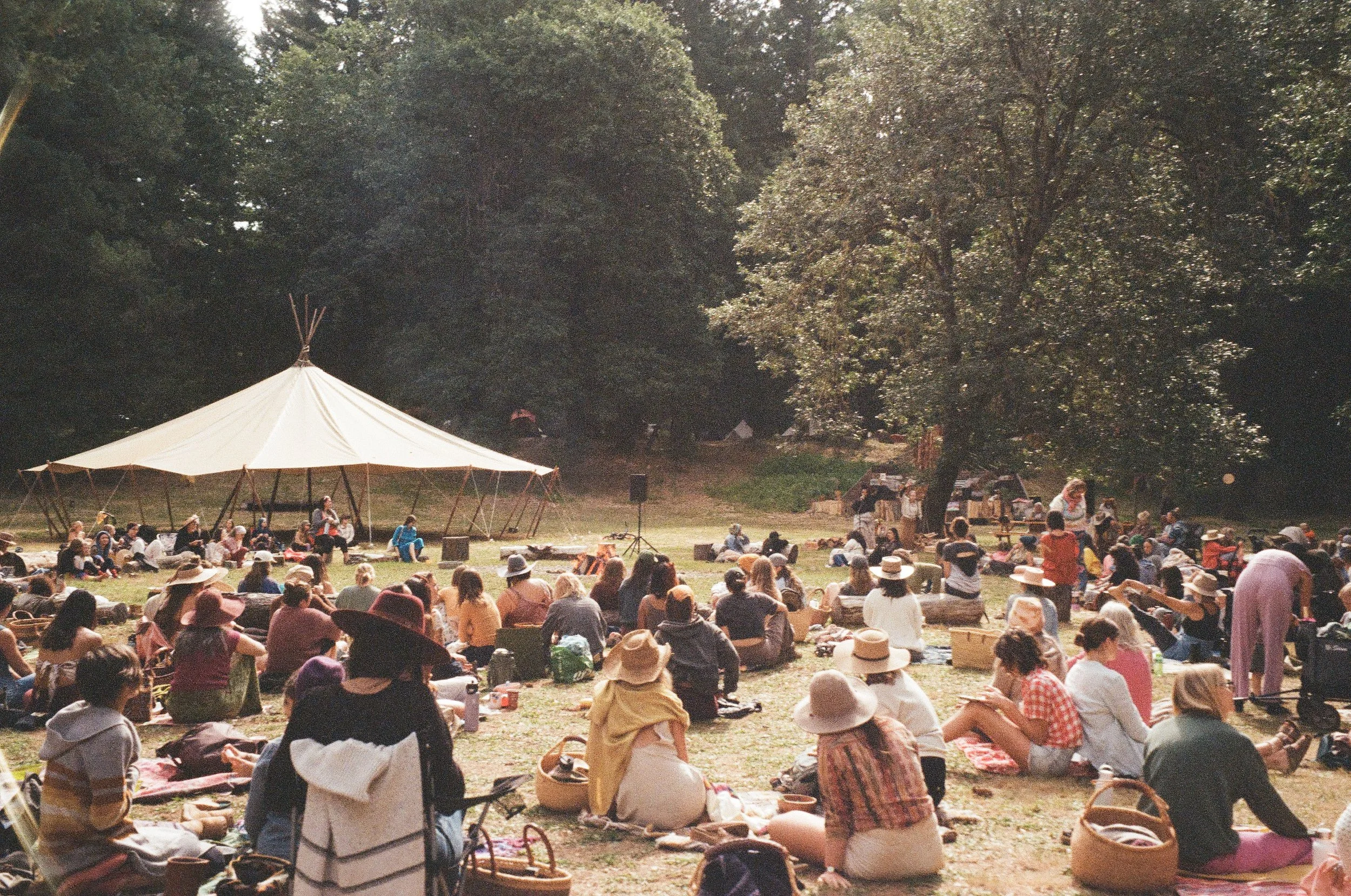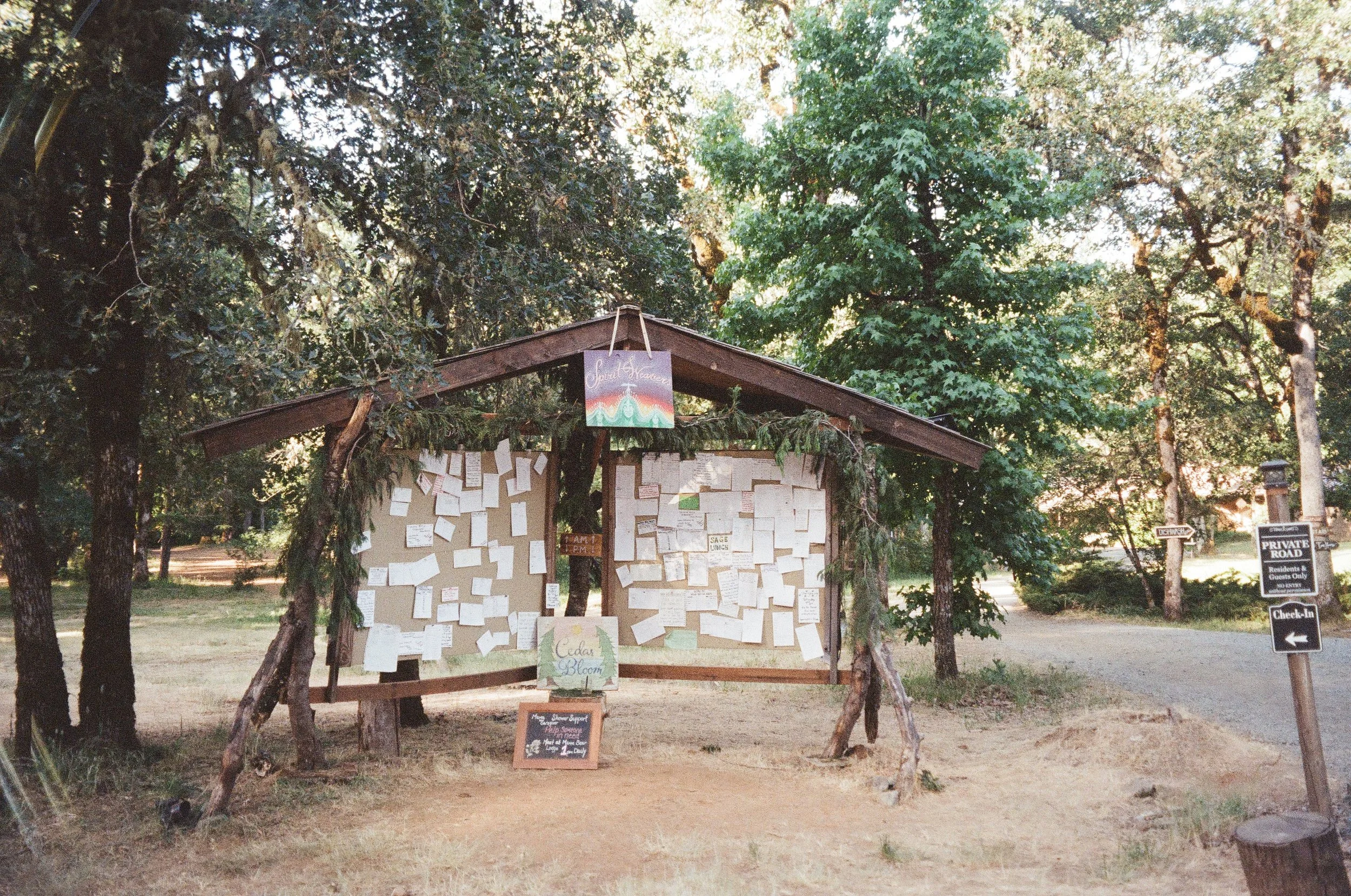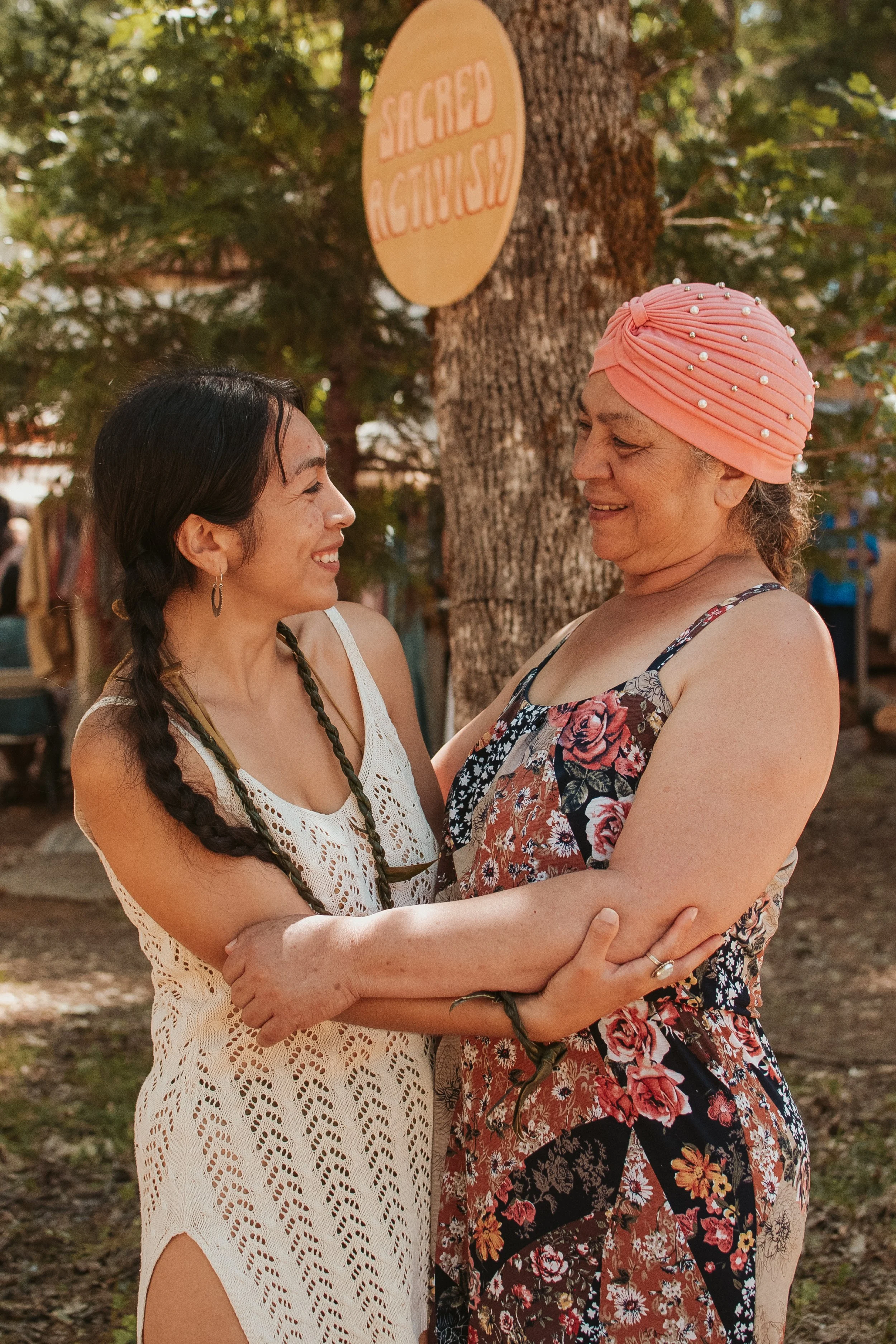
Juana Guillen Rodriguez
On the gifts, grief, lessons and shaping of motherhood.

“Yo pienso que es un don que dios de dar como mujer, de hacer madre. Pero también una gran responsabilidad.”
“I believe it’s a gift that God gives as a women—to be a mother. But it’s also a great responsibility.”
MOTHER MEDICINE
After a year of traveling abroad, my case of homesickness became a discomfort that could only really be cured with natural remedies: long forest baths with the trees of my home in the Pacific North West to feel the weight of elder roots grounding me, a home cooked meal in the flavors of my beloved Mexican heritage, and time spent in the familiar ease of my mother’s presence.
Even in far off lands, our invisible connection marked my location in the world as it measured my distance from her, and what I called “home.” I knew that eventually I would have to return—as all heroes do upon completing their mystical journeys—to the place where the story began.
My return home to my mother was done with intention as together we were granted the space at Spirit Weaver’s Gathering to conduct our interview in the late days of Spring this year. Spirit Weavers Gathering is an annual all women’s and children’s festival that is held in Southern Oregon during the immeasurable turning of Spring to Summer season.
In our initial hour long interview beneath the shady oaks and pines, I sat in conversation with my mother, Juana Guillen Rodriguez, and got to hear her story of motherhood: it’s gifts, grief, lessons and how it shaped her identity in the world.
Photographs by Jacquelin Molina Guillen and Nena Eve Interview by Jacquelin Molina Guillen
Juana is a daughter of mexico, mother and advocate. She immigrated to the united states at age 17 and had her first child of 8 shortly after arriving. While beginning motherhood early, it has been a journey that defined and guided her life’s mission. After suffering from a stroke in 2011, which left her permanently disabled, she owed her recover to god and devoted herself to serving the Catholic church by helping immigrant mother’s establish themselves in the state of oregon. she has recently welcomed her first great-grandchild and is settling into the transition of becoming an elder and matriarch. her children are everything to her.
The following interview was conducted in Spanish and has been translated to English. The conversation discusses sexual violence. Reader, please take care of yourself.
Daughter: Did you always know that you wanted to be a mom?
Mother: I always liked children but I had no idea how I could become a mom because I never had an education. We didn’t receive sexual education, we weren’t told that the man and women reproduced because it was considered a taboo. We weren’t even told that women had periods, nothing like that. My mother never told us anything about being a woman. She would just become pregnant and I didn’t know how it had happened.
So for me it was really confusing when I got pregnant for the first time, it was traumatic. But every time I felt my baby moving inside me, for me it felt exciting, there are no words to describe it. I knew that it was life and it was my child.
Daughter: How old were you when you had your first child?
Mother: I had just finished my 17th year.
Daughter: How did you feel when you found out?
Mother: It was something really confusing because it happened through assault (begins to cry).
When I started to feel bad, I had nausea and everything, that’s when I went to the doctor and he told me I had a baby in my stomach and I got scared, because the assault happened when I was unconscious. People would ask me what happened, but I was scared to say anything. I was alone.
Daughter: Where were you?
Mother: I was in California. Eventually I found some family and I went to live with them. But it was a very sad pregnancy, a difficulty to confront on my own without having an information, until a woman took me to a clinic. They gave me a book, I looked at the book and saw how my child was growing inside me, like a little frijole, and that’s when I began to love my baby.
I would feel a movement inside me, and the cousin I was living with told me, “That’s your baby moving.” So every night I would ask him to move for me and he would. Even when I started crying because I was feeling alone and scared, he would feel my pain and start moving like he was saying, “You’re not alone anymore, mommy.”
It was a hard pregnancy because I was alone, I worked very little and was very hungry. The person I lived with, who was my cousin, was very judgemental toward me because I was a single mother. Eventually I left to live with my sister [who had moved to the United States], she was pregnant with her second child. I was 4 months pregnant (sighs).
I fell in love when he was born, I thought he was so beautiful. I no longer felt alone. Eventually I started working more and I was able to move out on my own with my son. But despite my trauma and everything, I fell in love with my son. He was my motor to move forward. We became best friends. We talked, I bought him instruments that he would play, he loved the marimba. He was very intelligent.
That’s how it was. That’s the story of David.

“Yo como quisera saber esta conocimineto en ese tiempo, todo huberia sido diferente.”
Daughter: Do you think being a mom is a part of your identity?
Mother: ¡Claro que sí! It’s the most appreciated part because you will see yourself in that baby. If you have a girl, you will see yourself in her. That baby will be a part of you. There will always be a link to you. That is why its so important, the connection, from conception.
I wish I had this knowledge during that time, everything would have been different. But now I am trying to find other ways to be with my kids.
I feel a sense of belonging to creation. Because I gave life, no matter how, if I had a partner or not. I gave life. I feel like I am a tree that gave fruit—gave beautiful fruit. I feel like not having kids is like being a tree that didn’t give any fruit—no fruit or no flowers.
Now, to this day, I feel like I am a woman, a mother, a friend, a sister: I feel part of creation. It doesn’t matter how difficult the circumstances were, it was what made me a warrior: a person that never gives up. To continue no matter what, that I fall and get back up and say, “I will continue.”
Daughter: What was your relationship like with your mother?
Mother: There was no relationship, mija. There was no relationship. My mom wasn’t someone interested in having a relationship, she was more of an authority than a mother. I never had a opportunity to ask her things I wanted to know, I was scared of her. She was a wonderful person with everyone else, but with her children she was very strict. She wasn’t open minded so you couldn’t ask her anything.
Everything was taboo for her. But my sister gave me demonstrations for things, but with my mom I couldn’t ask about that. I didn’t have a mother-daughter relationship with her. I was a lot closer relationship to my father, I was always with him.
Daughter: You don’t think she wanted to be a mother?
Mother: I don’t think mama wanted to me a mom. She would just get pregnant and that was that.
Daughter: What was her role as a mom?
Mother: Just to have kids and breast feed for two years, then pass over responsibility of caretaking of the youngest children to the oldest. For example, when I was 6 or 7 years old I began to change my siblings diapers. And my mom had to make sure that everything was going well on the farm and then make dinner or oversee the cheesemaking.
Daughter: Did you ever feel love from her?
Mother: No. I can’t remember her hugging us or giving us affection.
Daughter: Do you feel like being a mother was medicine?
Mother: For her?
Daughter: For you.
Mother: For me, yes. Because when I had [my first two], I thought it was so beautiful to dress them up and take care of them. I felt like I was healing what my mother didn’t heal with me. I felt like when I would dress you up, I healed my inner child.

Daughter: What is the best gift of being a mother?
Mother: It’s something that can’t be explained with words. I believe it’s a gift that God gives as a women—to be a mother. But it’s also a great responsibility.
It’s something miraculous. It’s something that, when your children grow up and leave, you feel an emptiness. Even if you think, “I did it too, I left my parents too.” But you still want them with you. It’s something that can’t break, like you’re still connected by the umbilical chord. But you have to learn that is the way of nature.













